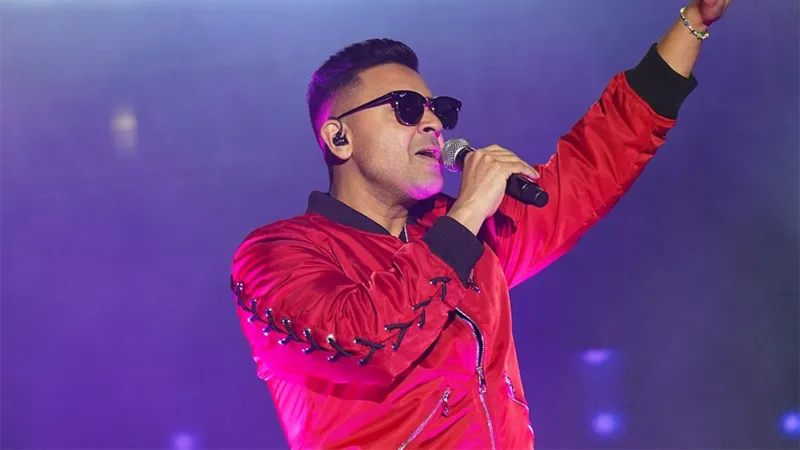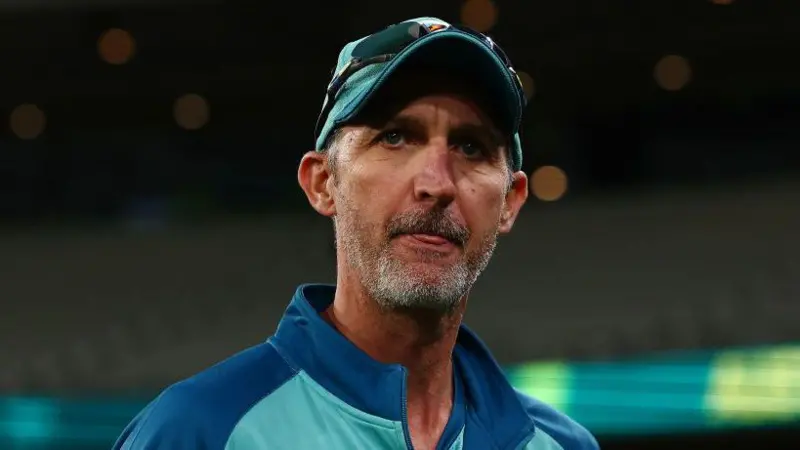Jay Sean’s search for the next generation of South Asian talent
Jay Sean is seen as a trailblazer among South Asian musicians.

He's considered one of the first artists from an Indian background to make it as a popstar in the West, and one who's paved the way for others to follow him.
But it was a moment closer to home that really showed him how far things had come.
Speaking to BBC Asian Network, he recalls his daughter, now aged 10, and her classmates being asked to "draw five different things that meant a lot to them".
"One of them was the Indian flag," he says.
"And I almost teared up."
Jay says watching his daughter "taking on her culture in a way she could feel proud" was a long way from his own childhood.
"I am a first-generation British-born Indian, so it was very difficult for me to assimilate into society, into British culture," he says.
"We had to hide our culture for so long, in order to not be picked on or bullied.
"I feel like my generation has provided a safer space for our children, so they don't have to feel like they can't be proud to show off their culture."
Jay, who's been writing and performing since the early 2000s, says he didn't have many role models when he first broke into the music industry.
"When I started off there were close to zero South Asians in mainstream music and I found it quite lonely," he says.
Jay says his music, with hits such as Ride It and Down, has always been influenced by his culture, because it felt "natural and organic" to include it.
His latest track Heartless - a collaboration with Canadian producer Ikky - blends R&B with English and Punjabi lyrics.
But he admits to growing tired of feeling like "the lone soldier for so many years".
'Talent deserves chance to shine'
With a string of achievements, such as topping the US Hot 100, Jay says he expected other South Asian artists to be signed once he'd established himself.
But when it never really happened he decided to do it himself.
Jay's music label 3AM Entertainment has partnered with Virgin Records to support new artists.
"I got tired of waiting for other people to do it," he says. "Because I just saw and witnessed too much talent around me on my travels."
Jay says he's at a point in his career where he wants to give back and support upcoming South Asian artists across the globe.
"I will always put out music but what's next for me is a bigger because I've been working towards that for many years," he says.
"I’m just so proud to be able to provide a platform where we can sign artists from a South Asian background who never really had a chance to shine without some struggle or without being understood."
South Asian music has experienced a surge in popularity in recent years, and Jay says he's seen a shift in the way artists can connect with fans.
"As an artist you have to think where is the audience? In the '90s that might have been MTV. Now to promote your music you have to be on TikTok and Reels."
Jay 2009 hit Down featuring Lil Wayne recently went viral with users trying to copy the US rapper's verse.
And his social media accounts - particularly his TikTok - are a mix of music promotion and more comedic clips.
"Acting goofy on camera is not comfortable for every artist, but I've always been a bit of a joker way before I did music," says Jay.
"And now I think a lot of my fans can connect with my personality through social media.
"And I'm very grateful for that."
But there's still a feeling among South Asian artists that they still don't get enough mainstream recognition.
More acts have been making it on to the line-ups of major festivals such as Coachella, and Radio 1's Big Weekend saw up-and-coming artists including Saloni, Deeps and Shehxna perform on the Introducing Stage.
Alongside that, the first-ever Official British Asian Music Chart launched in April, aiming to help more young talent into the big time.
Jay says he hopes his new partnership will allow new artists to be appreciated on mainstream platforms and make a global impact.
He's already signed three artists - yet to be revealed - and believes it's the start of something bigger.
"We're feeling really, really positive about the kind of talent that we're taking on.
"And we want our artist to feel supported and represented."
If more artists from South Asian backgrounds break through, Jay says, the hope is that they can elevate the whole genre.
"K-pop has gone mainstream, the same way that Latin music has gone mainstream, and they’re singing in their mother tongue.
"I feel like we should have that same opportunity and share it with the world."
-bbc







